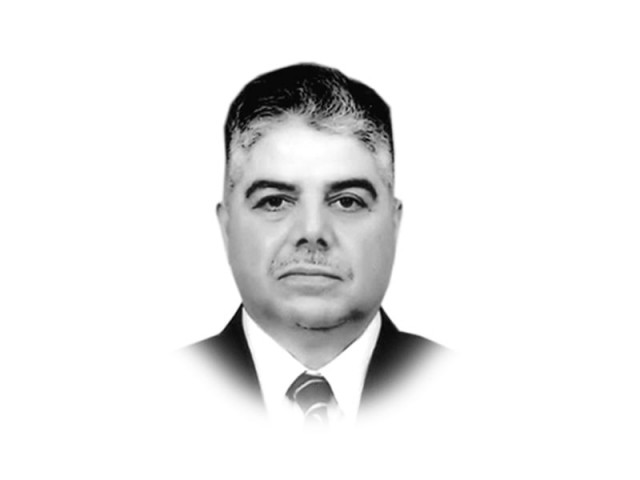Al Qaeda and the task before the Pakistan military
Does the growing sense of anti-Americanism in Pakistan mean we are playing into the hands of al Qaeda?

According to a recent report released by the Stockholm International Peace Research Institute, some 5,000 nuclear weapons are deployed around the world, and both India and Pakistan continue to expand their capacity to produce fissile material for military purposes. “South Asia, where relations between India and Pakistan seem perpetually tense, is the only place in the world where you have a nuclear weapons race,” the director of the institute said recently. A Washington Post op-ed in January this year claimed that “Pakistan’s nuclear arsenal now totals more than 100 deployed weapons.” It further maintained that after years of apparent parity, Pakistan now has an edge over India.
While such developments may be reassuring for nuclear chest thumping, recent events inside the country illustrate some uncomfortable truths. There is no doubt that anti-Americanism has grown as rapidly as the number of ‘militant sympathisers’ who now soak the military’s rank and file. This is substantiated by a report on the interaction between Pakistan’s Ambassador to the US Husain Haqqani and the student officers at the National Defence University in Islamabad in May. When asked which among the three, internal, India or America is the principal national security threat to Pakistan, an overwhelming majority chose the third option. The arrest of Brigadier Ali Khan and admission by senior naval officials before the National Assembly Standing Committee on Defence that terrorists attacking the PNS Mehran base had support from inside are only the recent acknowledgement of these realities.
The armed forces, the country’s strongest institution, are now substituting India for the US as the principal threat. The central theme of al Qaeda’s ideology of takfeer is also founded on anti-Americanism; it denounces any strategic alliance of Muslim majority states with non-Muslim states, particularly the ‘big satan’. While the Arab spring has seen a firm rejection of this ideology in the Middle East, we in Pakistan seem to be inadvertently embracing it. An overwhelming anti-American mindset and personnel with ‘extremist’ proclivity filling the military ranks of a nuclear armed Pakistan is al Qaeda’s dream come true. Are we innocently playing into the hands of al Qaeda and what does this mean for Pakistan’s future?
The moot point is that if the pre-dominant threat to Pakistan is from the US, what is the strategy to fight the enemy who recently refused to vacate the Shamsi airbase? Also, with India now ostensibly relegated low on the threat perception index, why must we continue expanding our nuclear arsenal since enough of ‘minimum credible deterrence’ already exists?
In his magnum opus Inside al Qaeda and the Taliban, the slain journalist Saleem Shahzad, said: “Al Qaeda’s first objective was to win the war against the West in Afghanistan. Its next objective was to move on to have the fighting extended all the way from Central Asia to Bangladesh to exhaust the superpower’s resources before bringing it on to the field in the Middle East for the final battles to revive the Muslim political order under the Caliphate.” It may not be farfetched to state that al Qaeda’s philosophy aimed at ensnaring all Muslim liberation movements worldwide into its fold in pursuit of its global agenda is becoming more probable in this region. The blending of the Taliban, the Tehreek-i-Taliban Pakistan, the militant outfits of southern Punjab and several Kashmiri resistance movements, including Ilyas Kashmiri’s 313 Brigade, with al Qaeda points in this the direction.
Some of Pakistan’s major military and strategic facilities are located in dense urban centres and for good reason these cannot be relocated. With the rise in urban terrorism and al Qaeda’s strategy to overpower Pakistan, the sole de facto nuclear state in the Muslim world, the imperative challenge for the military is to purge its ranks of the adherents of this ideology.
At a crossroads, Pakistan has to address a fundamental question, an answer to which will define the nation’s destiny. Are our armed forces for the defence of Pakistan or are they for the greater glory and protection of Islam? The Pakistan Army has long given up Zia’s gifted emblem of imaan, taqwa, jihad and fisabilillah. More importantly, it has boldly fought and reclaimed areas from militants. The Indian foreign secretary’s recent acknowledgment that “the prism through which Pakistan sees the issue of terrorism has definitely been altered” is an apt conclusion. The trend set in motion during the 80s, one that allowed a professional fighting force to morph into an Islamic army, must be reversed in earnest. Failure to do so is an open invitation to the US and the West to perform what we have long theorised as conspiracy to ‘defang’ us.
Published in The Express Tribune, July 7th, 2011.



1725254039-0/Untitled-design-(24)1725254039-0-208x130.webp)















COMMENTS
Comments are moderated and generally will be posted if they are on-topic and not abusive.
For more information, please see our Comments FAQ